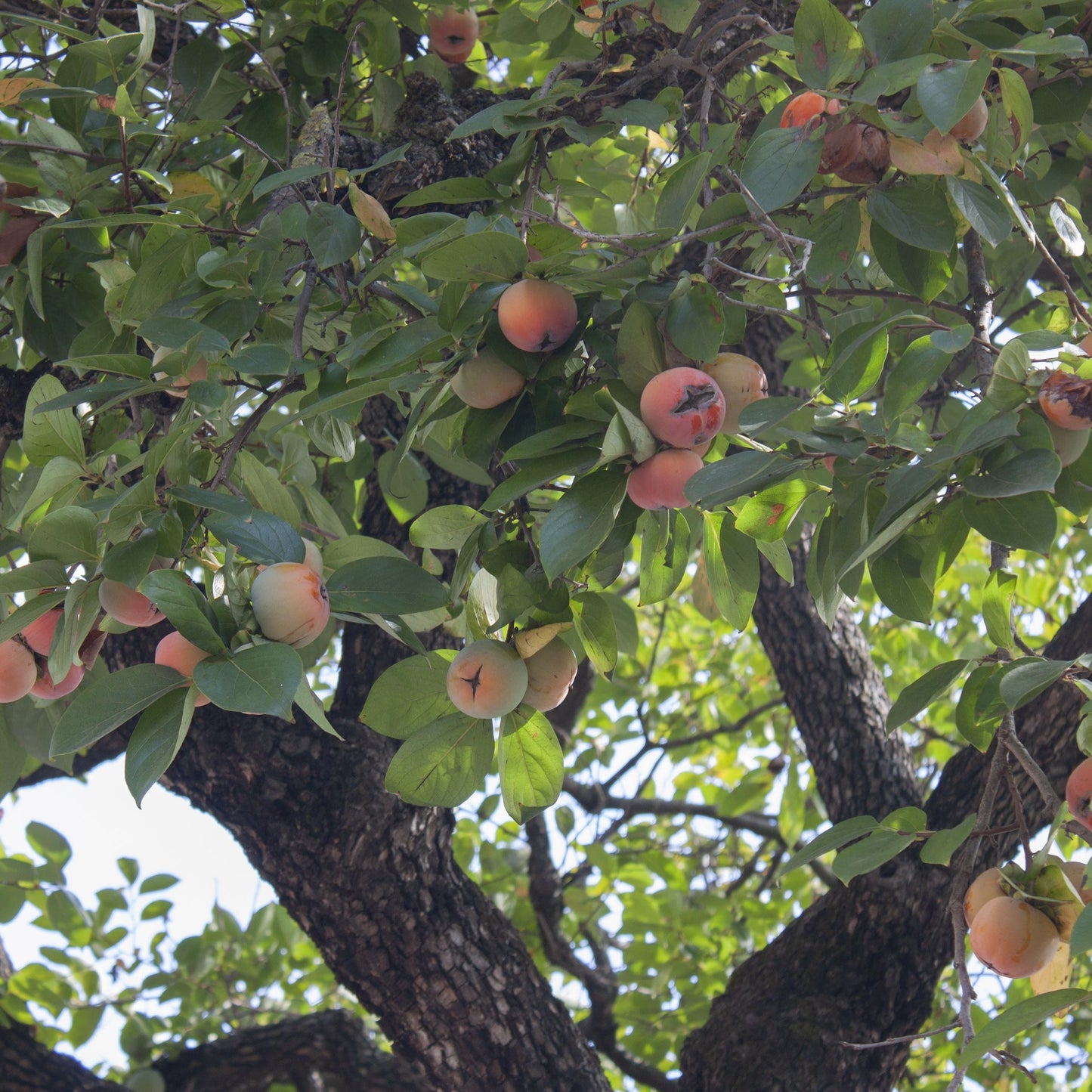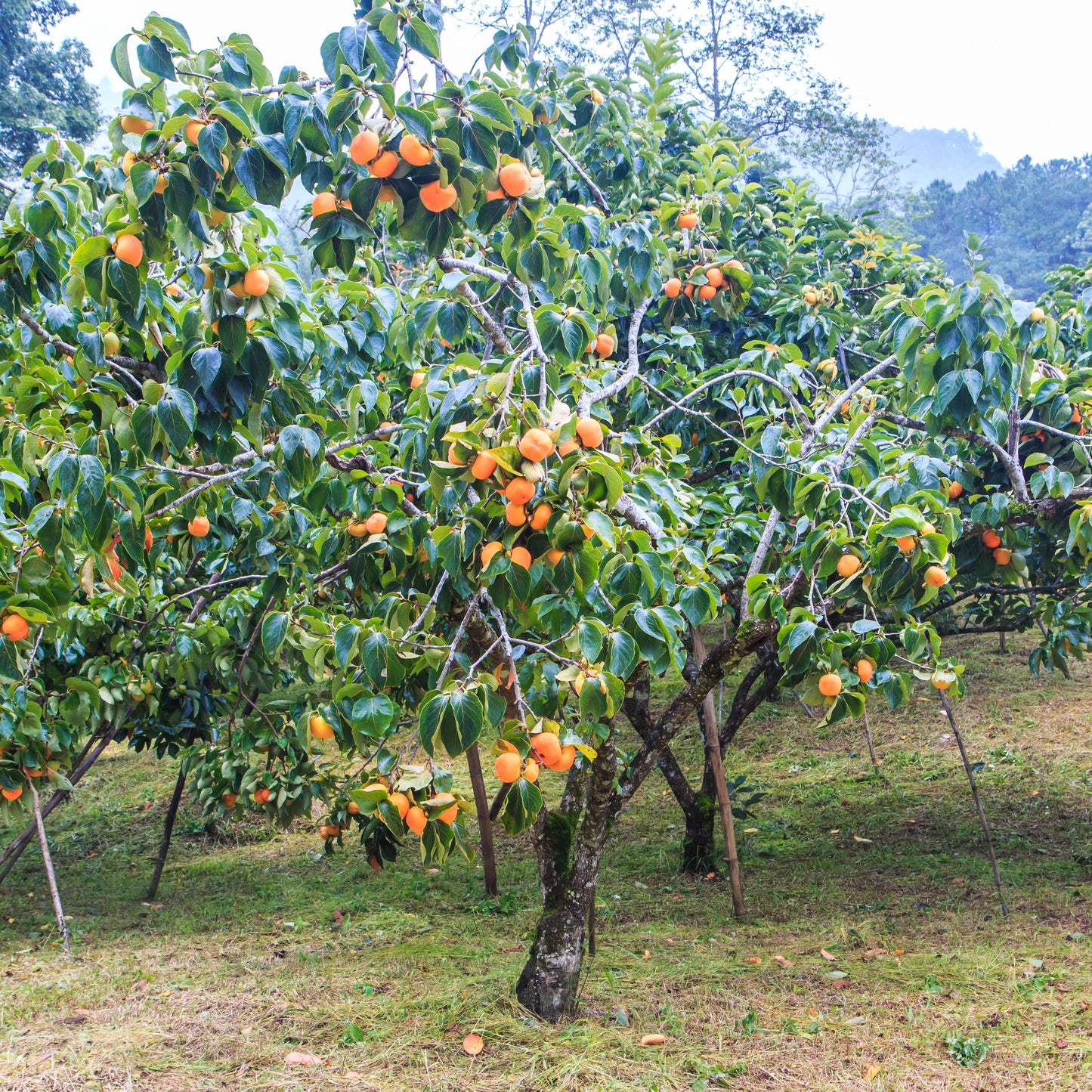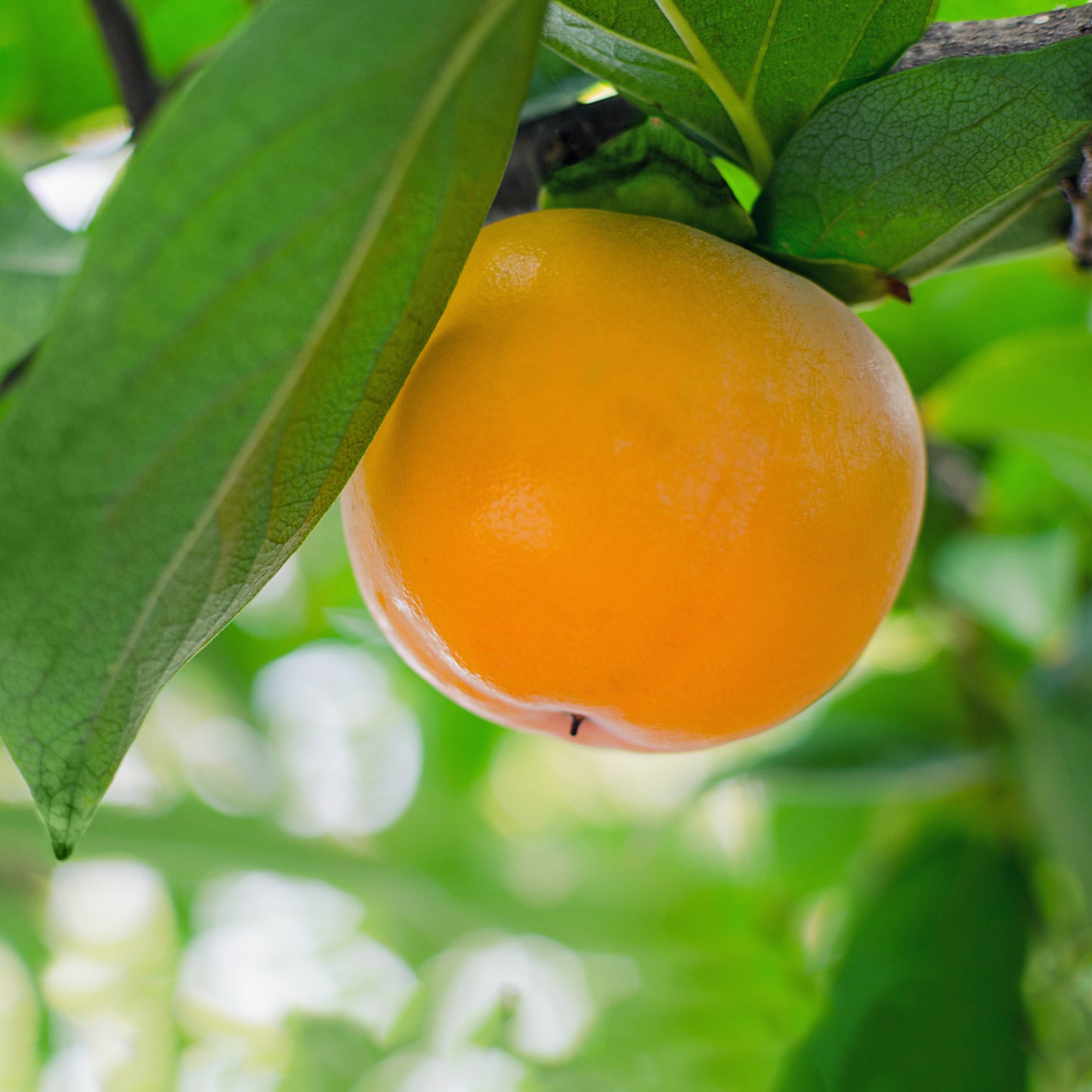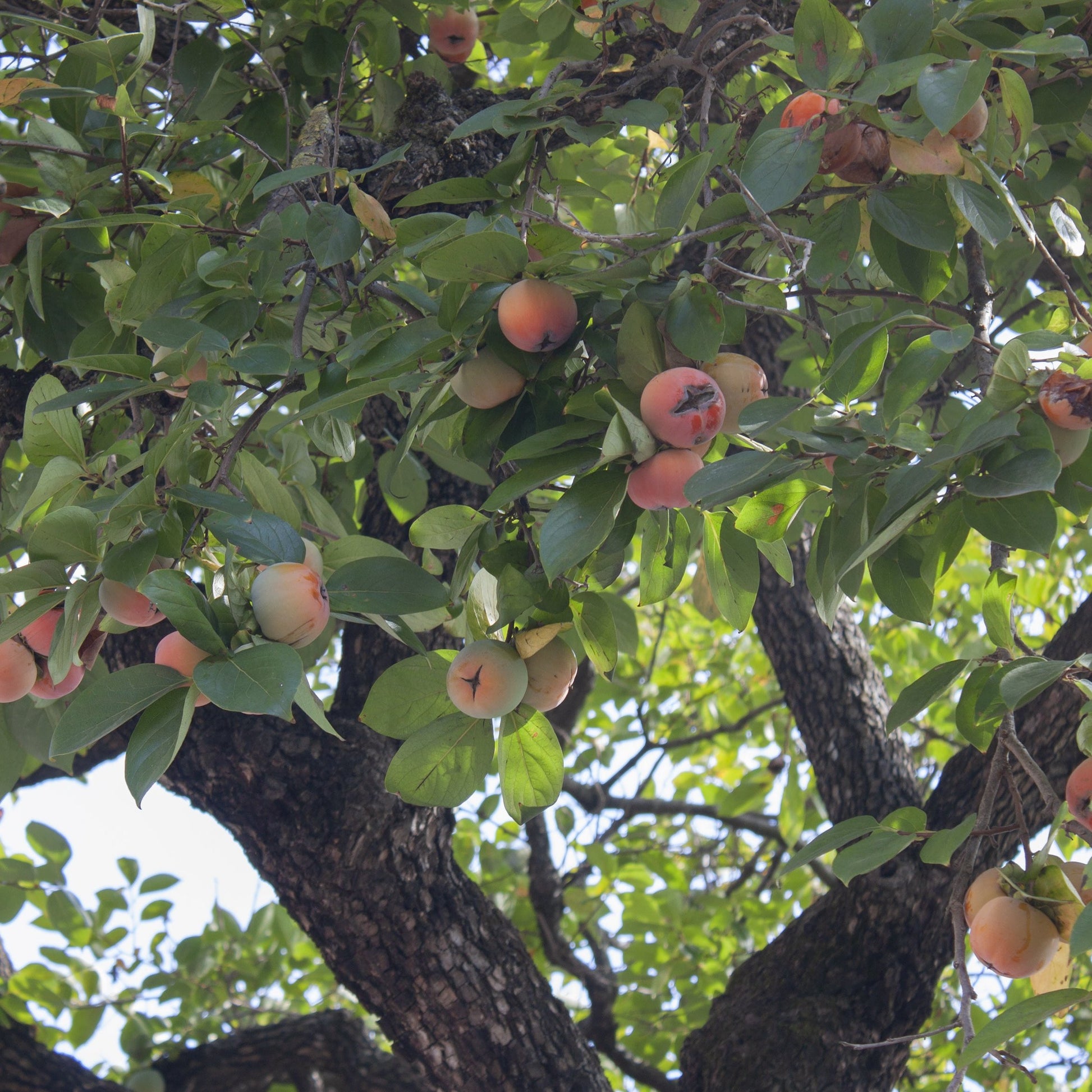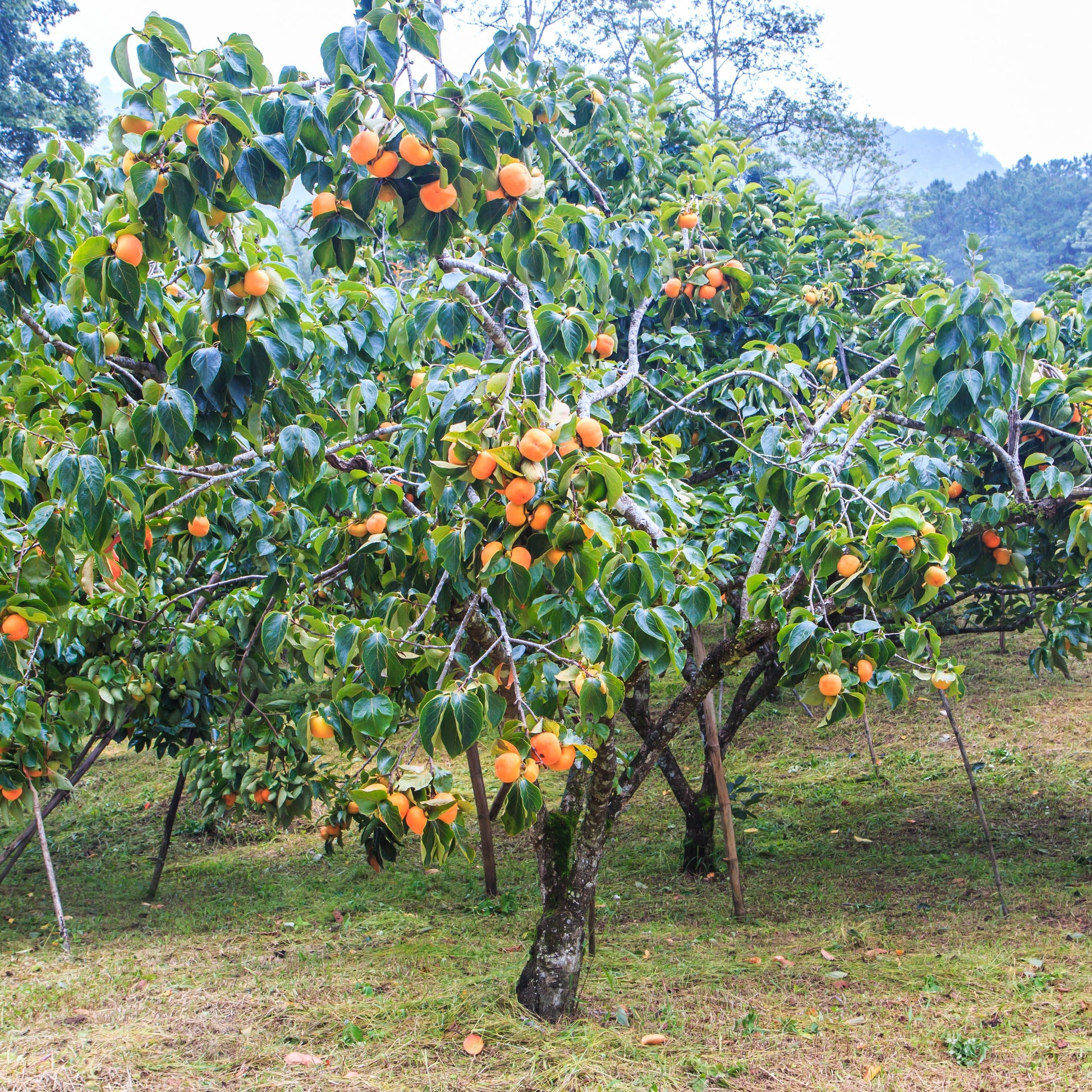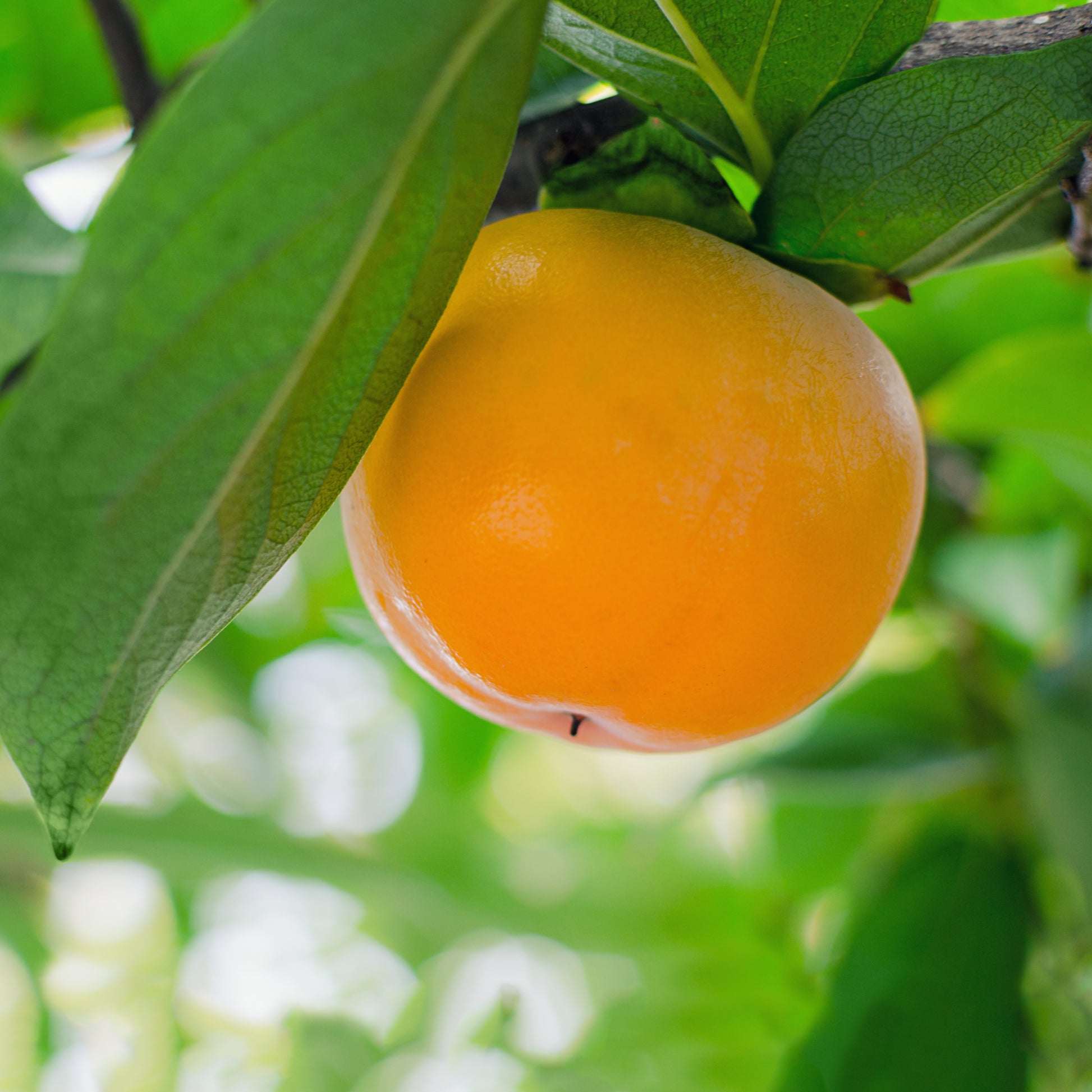Limited Quantities - Reserve Now For Fall
American Persimmon Tree
American Persimmon Tree
Couldn't load pickup availability
Diospyros virginiana
The American Persimmon Tree is a hardy, native fruit tree prized for its sweet, honey-like fruit, resilience, and ecological benefits. With its lustrous green leaves, fragrant spring flowers, vibrant fall foliage, and unique orange fruit, this low-maintenance tree is an excellent choice for home orchards, wildlife gardens, and naturalized landscapes. Once established, it is drought-tolerant, disease-resistant, and highly adaptable to a variety of soil conditions.
Below is a detailed breakdown of its characteristics, care needs, and benefits.
American Persimmon Tree
| Attribute | Details |
|---|---|
| Botanical Name | Diospyros virginiana |
| Common Names | American Persimmon, Common Persimmon, Eastern Persimmon |
| Mature Height | 35-60 feet |
| Mature Width | 20-30 feet |
| Growth Rate | Moderate to Fast (1-2 feet per year) |
| Lifespan | 75-100+ years |
| USDA Hardiness Zones | 4-9 |
| Chill Hours | 200-500 hours |
| Sun Preference | Full sun to partial shade |
| Soil Type | Well-drained, loamy, sandy, or rocky soils |
| Soil pH | Slightly acidic to neutral (6.0-7.5) |
| Water Needs | Low to moderate; drought-tolerant once established |
| Flowering Season | Late spring (May-June) |
| Flower Color | Small, pale yellow to creamy white |
| Fruit | Medium-sized, orange fruit that ripens in late fall |
| Harvest Time | Late fall (September-November) |
| Wildlife Attraction | Bees, butterflies, deer, foxes, birds |
| Growth Habit | Upright, rounded canopy |
| Pollination | Dioecious (male and female trees required for fruiting) |
| Landscape Uses | Home orchards, wildlife gardens, native plant landscapes, shade tree |
| Maintenance Level | Low |
Key Features & Benefits
✅ Delicious, Unique Fruit – Produces sweet, custard-like fruit that is rich in vitamins A & C, antioxidants, and fiber.
✅ Low-Maintenance & Drought-Tolerant – Once established, it thrives with minimal care, even in poor soils.
✅ Supports Local Wildlife & Ecosystems – Provides nectar for pollinators and fall fruit for birds, deer, and small mammals.
✅ Cold Hardy & Heat Tolerant – Grows well in diverse climates from the Northeast to the Deep South.
✅ Multi-Season Beauty – Boasts fragrant spring flowers, glossy green summer leaves, fiery autumn foliage, and vibrant fruit.
Pros & Cons
| Pros | Cons |
|---|---|
| Produces sweet, edible fruit rich in nutrients | Requires both male and female trees for fruit production |
| Native, eco-friendly tree that supports wildlife | Astringent until fully ripe (must soften before eating) |
| Highly adaptable to various soil types | Can grow quite large, requiring adequate space |
| Resistant to pests and diseases | Dropped fruit can be messy if not harvested |
| Drought-tolerant and cold-hardy | Can take 4-7 years to begin fruiting |
Planting & Care Guide
- Spacing: Plant 20-30 feet apart to allow for proper growth and air circulation
- Mulching: Apply a 2-3 inch layer of mulch to retain moisture and suppress weeds
- Pruning: Prune in late winter to remove dead or overcrowded branches and encourage strong structure
- Fertilization: Not required in most soils; if needed, apply a balanced fertilizer in early spring
- Watering: Water deeply in the first few years, then reduce as the tree matures
The American Persimmon Tree is an excellent choice for home growers, permaculture landscapes, and wildlife enthusiasts, offering delicious fruit, stunning seasonal beauty, and ecological benefits. Whether you want to enjoy its rich, honeyed persimmons or provide food for wildlife, this native, long-lived tree is a low-maintenance, rewarding addition to any landscape!
Share
